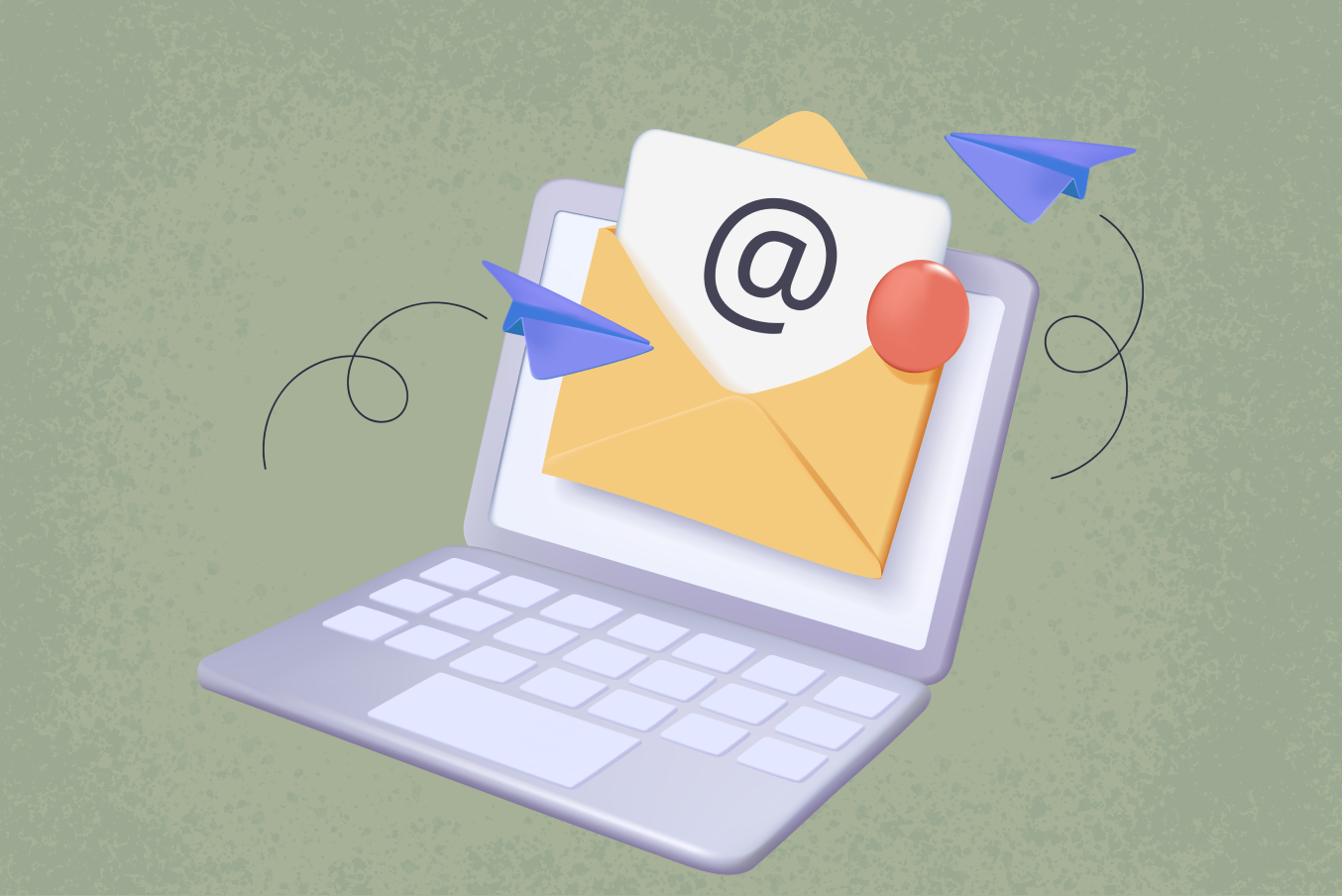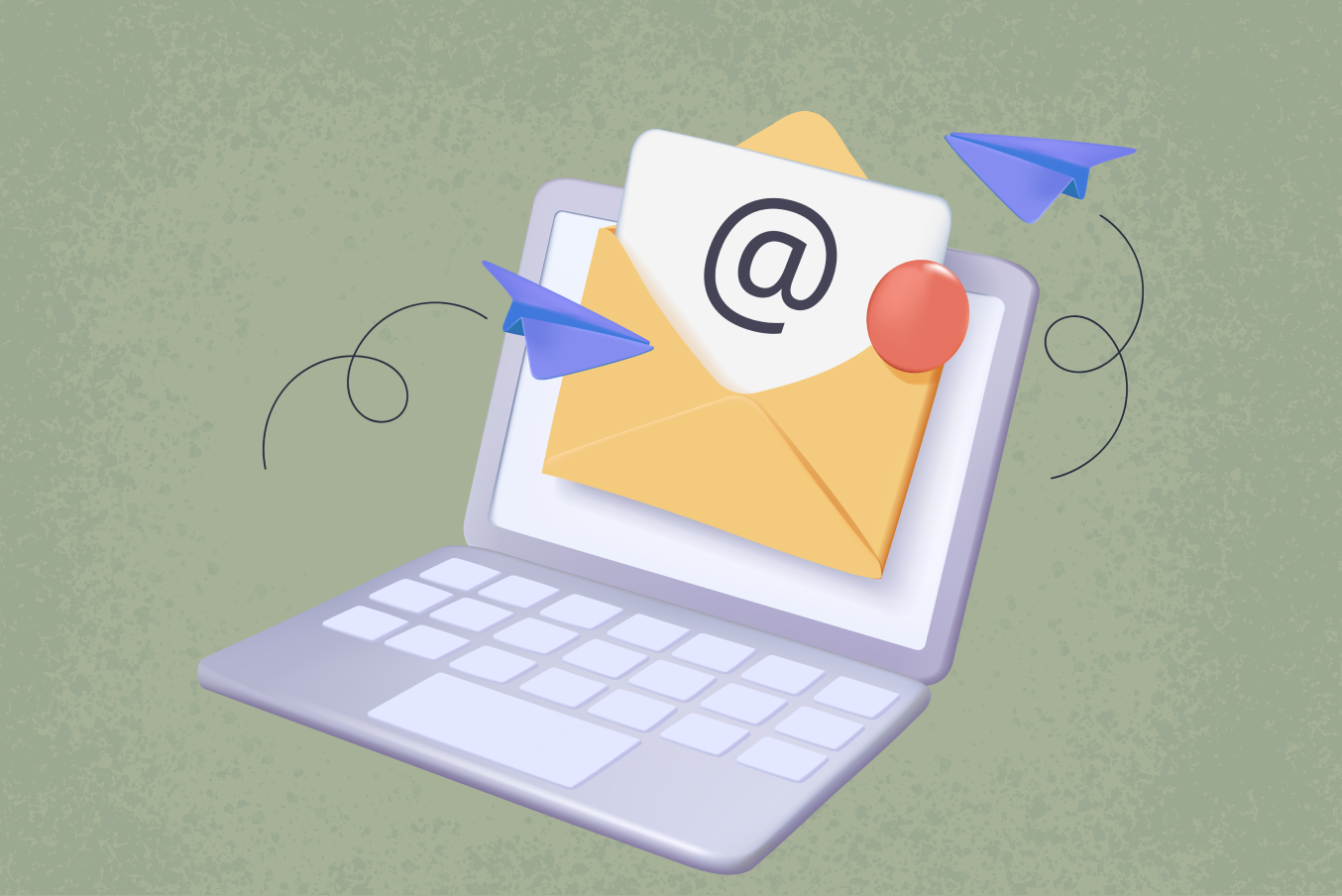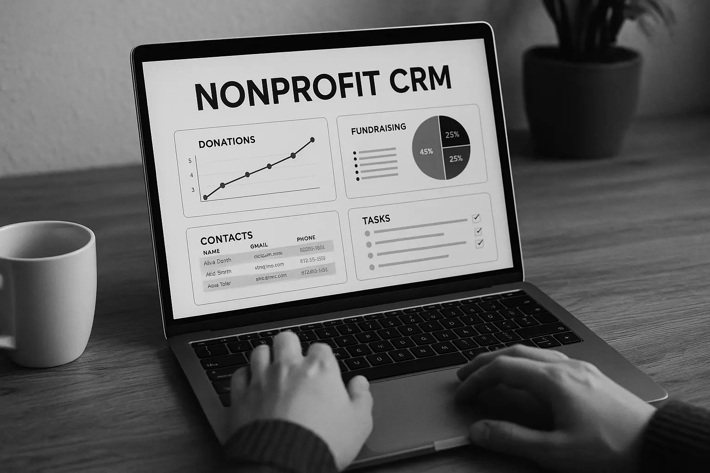
Effective communication is the cornerstone of successful business operations in today's digital landscape. Business email facilitates professional, efficient, and secure exchanges among the various available tools and platforms. This blog explores the intricate world of business email, outlining its roles, key features, and how it differs from personal email accounts.
What is Business Email
Business email is a specialized email setup used for professional communication within and outside a company. Unlike personal email, which is typically used for informal or private communications, business email is an official channel for interacting with clients, colleagues, and stakeholders. It often features a custom domain that matches the business's name, enhancing the professional appearance and credibility of the organization. In this post, we delve deeper into what makes business email an essential tool for modern businesses and how it supports corporate operations and branding strategies. A professional business email often complements other key elements of a company's branding, such as a corporate headshot, which can further enhance the credibility and professionalism of employees' communication.
The Role of Business Email in Professional Communication
Business email is pivotal in both internal and external communications. Internally, it facilitates the flow of information between departments, teams, and individual employees, ensuring that everyone is on the same page and that business operations run smoothly. Externally, it is the main communication channel with customers, suppliers, and partners, playing a critical role in service delivery, customer relations, and supply chain management process.
Branding and Professionalism
One of the primary roles of business email is to reinforce a company's brand and professionalism. Emails sent from a custom domain (e.g., @yourcompany.com) help establish a professional image and increase the business's credibility compared to generic email services like Gmail or Yahoo. This professionalism can significantly influence customer perceptions and decision-making, making business email a powerful tool in brand strategy.
Efficient and Secure Communication
Business emails are designed to securely handle corporate communications' high volume and sensitive nature. With features tailored for business use, such as enhanced encryption and data protection measures, they ensure that confidential information remains secure during transmission. Furthermore, organizing and archiving capabilities help businesses keep track of their communications efficiently, aiding in compliance and operational continuity.
Key Features of Business Email Systems
Business email systems come equipped with a range of features designed to meet the specific needs of enterprises. Here’s an overview of the most critical functionalities:
Custom Domain Names
A custom domain name reinforces a brand and gives businesses control over their email addresses. This feature is crucial for maintaining consistency and recognition in all communications.
Enhanced Security Features
Security is paramount in business communications to protect sensitive information from cyber threats. Business email providers typically offer advanced security features, including SSL/TLS encryption, two-factor authentication, and anti-spam filters, to safeguard data integrity and privacy.
Advanced Storage Solutions and Data Handling
Business email accounts generally offer more storage space than personal accounts, accommodating the large volumes of emails that businesses receive and send. Moreover, they often provide better tools for data management, including sophisticated search functions and tagging systems to organize correspondence effectively.
Integration Capabilities
Integration with other online business tools like CRM systems, project management software, or marketing automation tools can significantly increase productivity and streamline workflows. This feature allows users to perform multiple tasks from a single interface, reducing the need to switch between different applications.
Compliance
Many industries are subject to regulatory requirements concerning data protection and privacy. Business email systems are designed to comply with such regulations, providing features that help businesses meet legal requirements effortlessly.
Choosing the Right Business Email Provider
Selecting the right business email provider is critical, as it affects the efficiency of email communications and business data security. Here are some key factors to consider:
Reliability and Uptime Guarantees
The provider should offer high reliability with minimal downtime to ensure that email services are always available when needed. Uptime guarantees are a common assurance providers give to signify their commitment to reliability.
Security and Compliance Features
Given the sensitivity of business communications, the chosen provider must offer robust security measures. This includes compliance with industry-specific regulations, which can be critical for healthcare, finance, and education businesses.
Customer Support and Service Levels
Good customer support can be invaluable, especially when dealing with email issues that could affect business operations. Providers should offer timely and effective support to address any concerns or problems that may arise.
Cost-effectiveness and Scalability
Finally, the cost of the email service should align with the budget and needs of the business. It should also be scalable, allowing for easy adjustments as the business grows and its needs evolve.
Choosing the right business email provider involves balancing these factors to find a solution that fits the organization's specific requirements and goals.
Setting Up and Managing Business Email
Implementing and maintaining an effective business email system is critical for ensuring smooth communications and safeguarding company data. Here’s a step-by-step guide on how to set up a business email account, as well as tips for its management.
Step-by-Step Guide to Setting Up a Business Email
Registering a Domain: Your business email should reflect your business identity, and this starts with a domain name that matches your company's name. Choose a reliable domain registrar and check for the availability of your preferred domain name.
Choosing a Provider and Plan: Based on the factors discussed earlier—such as reliability, security, customer support, and scalability—select an email service provider and a plan that suits your business needs. Consider providers that offer additional tools and services that could benefit your operations.
Configuring Email Addresses for Employees: Once your domain and email service are active, set up email addresses for your team. For consistency and professionalism, it's standard practice to use structured email formats like firstname.lastname@yourcompany.com or initial.surname@yourcompany.com.
Setting Up Security Features: Implement robust security measures, including spam filters, malware protection, and data encryption. Make sure to enable two-factor authentication for an added layer of security.
Which are the Top Emails for Businesses
Neo Mail
Neo Mail Email is a dedicated business email solution that offers several features, including custom domain names, robust security options, and integration capabilities with various business tools and software. Its competitive pricing structure is tailored to meet the requirements of businesses of all sizes, with different tiers offering additional features such as increased storage and advanced support. Key benefits include its user-friendly interface and comprehensive security features. Potential limitations are the need for a more customizable email management system and limitations in integration with less common third-party tools.
Google Workspace (formerly G Suite)
Google Workspace is a major competitor, offering extensive integration with its suite of applications like Google Docs and Google Drive, though it may be more expensive at higher tiers.
Microsoft 365
Known for its seamless integration with Windows environments and tools like Outlook and Teams, Microsoft 365 is preferred by organizations looking for advanced collaborative tools, albeit at a potentially higher cost.
Zoho Mail
Zoho Mail is part of the Zoho Office Suite, which is considered more affordable for startups and small businesses needing basic email capabilities with CRM integration.
ProtonMail
Focused on security and privacy, ProtonMail offers end-to-end encryption, making it a top choice for businesses that prioritize data security, though it may lack some business-specific functionalities.
Amazon WorkMail
Amazon WorkMail is another strong competitor, known for its seamless integration with AWS services, making it ideal for businesses already within the Amazon ecosystem. However, it might be less intuitive for users unfamiliar with AWS.
Tips for Managing and Maintaining an Effective Email System
- Regular Updates and Backups: Keep your email system updated to protect against vulnerabilities. Regular email data backups are also crucial to prevent loss in hardware failures or security breaches.
- Training Employees: Educate your employees on best practices for email usage, including security protocols to avoid phishing attacks and other common security threats.
- Archiving and Organization: Implement a system for archiving old emails and organizing current ones to ensure that important communications are easily accessible and the system remains efficient.
Common Challenges and Solutions in Business Email Management
Challenges may impact efficiency and security even with a well-set-up business email system. Here are some common issues and strategies to address them:
Managing Large Volumes of Email
- Challenge: Employees receiving overwhelming emails daily can reduce productivity and missed important communications.
- Solution: Use email management tools with features like tagging, categorization, and priority inbox settings to help manage the influx efficiently.
Dealing with Spam and Phishing Attacks
- Challenge: Spam and phishing attacks clutter the inbox and pose serious security risks.
- Solution: Implement advanced spam filters and regularly update them. Conduct ongoing security training for all employees to properly recognize and handle suspicious emails.
Ensuring Data Privacy and Security
- Challenge: Protecting sensitive information within business emails from unauthorized access is crucial for legal and privacy reasons, especially when dealing with a legal forms website.
- Solution: Use end-to-end encryption to send and receive emails. Regularly audit your email security practices and compliance with data protection laws.
The Future of Business Email
Looking ahead, the landscape of business email is poised to evolve further, integrating more sophisticated technologies and adapting to changing digital environments. Here are some trends that are likely to shape the future of business email:
Artificial Intelligence and Machine Learning
AI and machine learning are expected to significantly automate routine email tasks such as sorting, tagging, and responding to standard inquiries. This can free up valuable time for employees to focus on more complex tasks.
Increasing Use of Cloud-Based Solutions
The shift to cloud-based email solutions is anticipated to continue, driven by their cost-effectiveness, scalability, and ease of integration with other cloud services. This shift enables businesses to access their email systems from anywhere, facilitating remote work.
Developments in Email Privacy and Security Technologies
As cyber threats evolve, so do the technologies designed to combat them. Future developments in security technologies will likely provide even stronger protections for email communications, which will be crucial for maintaining trust and compliance.
Conclusion
Email is an indispensable tool for businesses of all sizes, as it offers features that improve communication and operational efficiency. Effective email management is essential for businesses to function smoothly and maintain their competitive edge. To achieve this, businesses should consider the following components of email management:
- Security: Email security is critical, protecting sensitive information from unauthorized access and against malware attacks and phishing attempts.
- Storage: Managing email storage is important, as it allows businesses to access their emails quickly, reduce clutter, and ensure that important messages are not lost.
- Archiving: Email archiving is essential for businesses that need to comply with legal or regulatory requirements. It helps them store and retrieve emails for future reference.
- Mobile access: With the increasing use of mobile devices, businesses must ensure that employees can access their emails on the go. This improves productivity and ensures that employees can respond to important emails quickly.
- Integration: Email systems should integrate seamlessly with other business applications, such as calendars and customer relationship management (CRM) systems. This improves operational efficiency and ensures employees can access all the information they need from a single platform.
To stay up to date with the latest trends and best practices, businesses should explore available options for email solutions. Whether a small startup or a large enterprise, numerous email solutions are available to suit different business requirements. It's essential to assess your needs and choose the solution to improve your communication and operational efficiency. Email service providers can offer tailored advice to help you choose the right solution for your business.
Disclaimer
The information provided on this blog is for general informational purposes only. All information on the site is provided in good faith. However, we make no representation or warranty of any kind, express or implied, regarding the accuracy, adequacy, validity, reliability, availability, or completeness of any information on the site. Under no circumstance shall we have any liability to you for any loss or damage incurred due to the use of the site or reliance on any information provided. Your use of the site and reliance on any information is solely at your own risk. This blog may contain links to other websites or content belonging to or originating from third parties or links to websites and features in banners or other advertising. Such external links are not investigated, monitored, or checked for accuracy, adequacy, validity, reliability, availability, or completeness by us. We do not warrant, endorse, guarantee, or assume responsibility for the accuracy or reliability of any information offered by third-party websites linked through the site or any website or feature linked in any banner or other advertising. We will not be a party to or in any way be responsible for monitoring any transaction between you and third-party providers of products or services.







